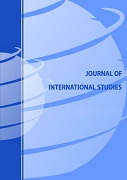TURKISH-RUSSIAN COOPERATION: IMPLICATIONS FOR NATO
TURKISH-RUSSIAN COOPERATION: IMPLICATIONS FOR NATO
Author(s): Karol KujawaSubject(s): International relations/trade, Security and defense, Transformation Period (1990 - 2010), Present Times (2010 - today)
Published by: Fundacja Centrum Badań Socjologicznych
Keywords: Turkey; Russia; NATO; MENA; security;
Summary/Abstract: The main objective of this article is to examine the factors that have influenced the rapprochement of economic and military relations between Turkey and Russia, especially in the years 2004-2021. This problem generates numerous research questions - who is the architect of this cooperation? Will Turkey completely limit its cooperation with Western partners, become more unpredictable and dependent on Russia? Or vice versa, will it seek to become a competitor of Russia in the international arena and in the region? From the methodological point of view, the author uses analytical, descriptive and comparative methods. The study uses both the discourse method and content analysis, including newspaper articles, television broadcasts, public speeches and other messages of individual politicians and intellectuals. The results of this research indicate that Russia is using Turkey as a tool to increase divisions within the NATO allies. Although Russian-Turkish ties have grown closer, in the recent years the countries have supported opposing sides in Syria, Libya, Ukraine, or Azerbaijan. However, Russia, which has significant leverage elements, benefits most from this rivalry. Russia supplies Turkey with natural gas and air defense missiles, builds a nuclear power plant and sends tourists to Turkey. In Syria, too, Russia can do great harm to Turkey.
Journal: Journal of International Studies
- Issue Year: 14/2021
- Issue No: 2
- Page Range: 194-207
- Page Count: 14
- Language: English

